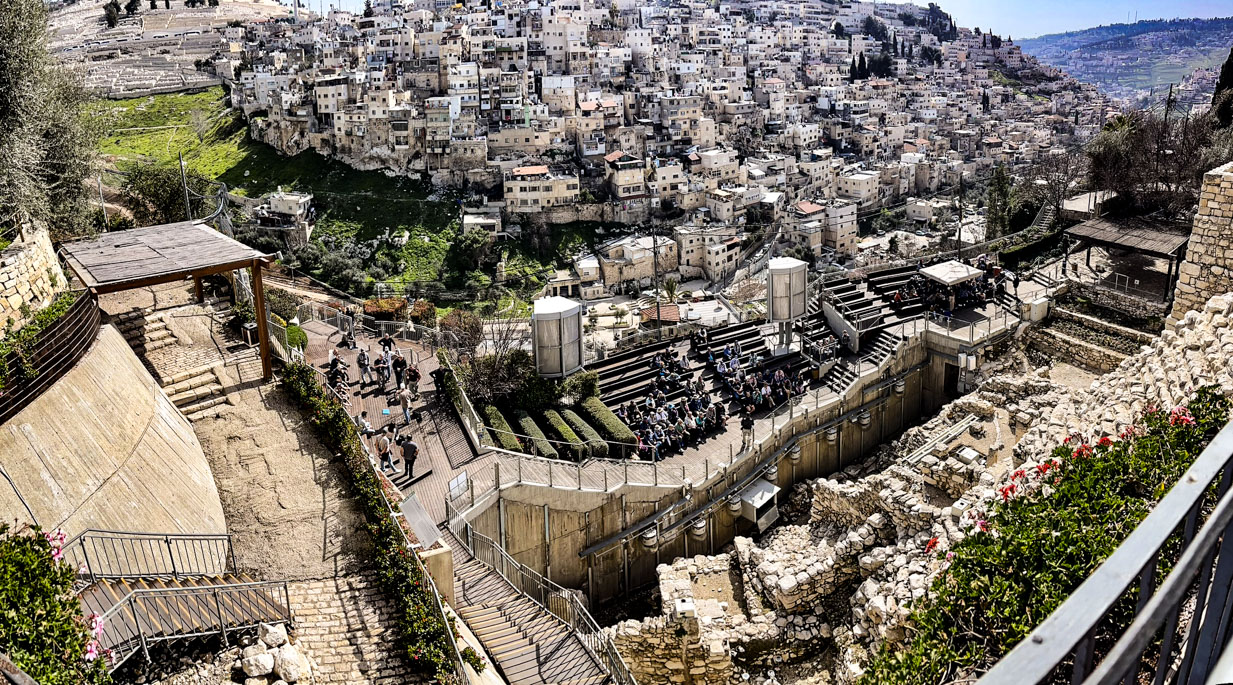

 ©Michael Player
©Michael Player
Chapter 34 (ESV) - Then Moses went up from the plains of Moab to Mount Nebo, to the top of Pisgah, which is opposite Jericho. And the LORD showed him all the land, Gilead as far as Dan, all Naphtali, the land of Ephraim and Manasseh, all the land of Judah as far as the western sea, the Negeb, and the Plain, that is, the Valley of Jericho the city of palm trees, as far as Zoar. And the LORD said to him, “This is the land of which I swore to Abraham, to Isaac, and to Jacob, ‘I will give it to your offspring.’ I have let you see it with your eyes, but you shall not go over there.” So Moses the servant of the LORD died there in the land of Moab, according to the word of the LORD, and he buried him in the valley in the land of Moab opposite Beth-peor; but no one knows the place of his burial to this day. Moses was 120 years old when he died. His eye was undimmed, and his vigor unabated. And the people of Israel wept for Moses in the plains of Moab thirty days. Then the days of weeping and mourning for Moses were ended.
And Joshua the son of Nun was full of the spirit of wisdom, for Moses had laid his hands on him. So the people of Israel obeyed him and did as the LORD had commanded Moses. And there has not arisen a prophet since in Israel like Moses, whom the LORD knew face to face, none like him for all the signs and the wonders that the LORD sent him to do in the land of Egypt, to Pharaoh and to all his servants and to all his land, and for all the mighty power and all the great deeds of terror that Moses did in the sight of all Israel.
Question to consider: How do you think Moses felt in being able to see the land before he died?
The last chapter of Deuteronomy was the transition of leadership from Moses to Joshua the son of Nun. Joshua may have added this epilogue, or maybe someone much later like Ezra. Even though Moses was not to enter the land, he was given the ability to view the land with undimmed eyes. Today someone might find that particularly cruel to have come so close and merely see what was beyond. Personally, I think Moses would have died with joy in his heart knowing that he had successfully brought Israel into the land and that God’s promises to Abraham, Isaac and Jacob would finally come to pass. Historically, many people have been willing to endure hardship knowing that it would be a blessing to future generations.
The targums for Deuteronomy described Moses being laid on a golden bed by angels like Michael and Gabriel and buried near Beth Peor in an unknown sepulcher. The book of Jude in the New Testament affirmed that at least the angel Michael was associated with the burial of Moses and that he battled with Satan over the body, rebuking him in the name of the LORD. The targums also say that Moses died on the seventh day of Adar on his 120th birthday. Some Jewish traditions still celebrate this date as a feast day.
After their mourning period, the people followed Joshua as was instructed, and whoever wrote these things down recognized that no other man met with God face to face and did miraculous signs like Moses. If you’ve been through my study of Hebrews, one of the writer’s proofs is that the mediator of the new covenant, Christ Jesus, was greater than Moses, for Christ created Moses. Moses was compared with a beautiful house while Christ was the builder of that house and thus greater.
Dear heavenly Father, thank You for working through Moses to bring about Your land promise to the people of Israel. We praise You for giving us eternal promises in Christ and pray for all people to call upon His name and be saved. Amen.